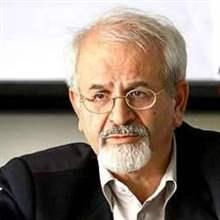

2:00 am AST - 3:30 am AST
Past Event
Content from the Brookings Doha Center is now archived. In September 2021, after 14 years of impactful partnership, Brookings and the Brookings Doha Center announced that they were ending their affiliation. The Brookings Doha Center is now the Middle East Council on Global Affairs, a separate public policy institution based in Qatar.
The Brookings Doha Center (BDC) hosted a panel discussion on February 26, 2018, which discussed the external and internal challenges facing Iran. The panel included Hooshang Amirahmadi, professor of the Edward J. Bloustein School of Planning and Public Policy at Rutgers University and president of the American Iranian Council; Shafeeq Ghabra, professor of political science at Kuwait University; and Seyed Mohammad Kazem Sajjadpour, president of the Institute for Political and International Studies (IPIS). Ali Fathollah-Nejad, visiting fellow at the Brookings Doha Center, as well as an associate at the Harvard Kennedy School Belfer Center’s Iran Project and an associate fellow with the Middle East and North Africa Program of the German Council on Foreign Relations (DGAP), moderated the event, which was attended by members of Doha’s diplomatic, academic, and media communities.
Fathollah-Nejad opened the discussion by asking the panelists to comment on the internal challenges facing Iran after the recent protests against the state/regime, which he described to have spread among the “middle-class poor” (Asef Bayat) within over 90 small cities. Fathollah-Nejad emphasized that the people who participated in the protests had both socioeconomic and political demands.
Amirahmadi opened his remarks by referring to the 1979 revolution in which people called for political freedom, independence in foreign policy, and a corruption-free government. However, he believes that after 40 years, Iran has not achieved any economic progress or social justice. He posited that since the Iranian revolution of 1979 absolute poverty has actually increased, the gap between the rich and poor has remained the same, and income per capita has declined, resulting in a reduction of people’s purchasing power. Thus, he criticized Rouhani’s economic policies because they have failed to provide a solution to the economic challenges facing Iranians. Pre-revolutionary Iran used to have a leading economy, similar to countries such as South Korea, Turkey, India, China, and Taiwan, but it is now lagging behind all these nations, as well as regional neighbors like the United Arab Emirates and Qatar. He believes that corruption, bribery, and nepotism play a major role among political elites that govern the country. Amirahmadi predicted that such protests would occur in Iran, and he thinks they introduced something profound that will shape the country’s future. However he also contends that the revolts, which included young Iranians under the age of 25, as well as the unemployed, were not big enough to introduce any immediate changes.
Amirahmadi then discussed how people from big cities like Tehran did not take part in the revolt because of their higher standards of living relative to smaller cities. Furthermore, he pointed out that even those people will lose out significantly in the near future as Rouhani is incapable of delivering substantial economic development. Iran has the second-largest gas reserves in the world, an educated population, so for him, the problem is a question of governance. He commented on Iran’s interventionist foreign policy, which reflects many of the problems associated with the country’s internal challenges because the same political players control both domains. He recommended that Iran should alter its regional behavior in order to achieve better relationships with neighboring countries, as well as the West.
Sajjadpour commented on the external challenges faced by Iran, as well as its regional policies and ambitions. He argued that there is a fundamental challenge for Iran to clarify its foreign policy strategy, which he believes is vague and thus often misunderstood. Discussions about Iran tend to employ alarming and threatening language, which Sajjadpour believes is not only dangerous, but also inaccurate. He believes that the country’s policies reflect its role as a nation that provides regional security. One of its most fundamental achievements, according to him, is its security independence. He also argues that it actually maintains a conciliatory foreign policy, as displayed by its recent response to the Gulf Crisis. Overall, he believes that people should revisit their understanding of Iran’s foreign policy and challenge the prevalent narrative that depicts Iran as a major threat. Lastly, he highlighted that Iran rejects the notion of regional hegemony and views its role in Syria as primarily a defensive one.
The final panelist, Shafeeq Ghabra, commented on Iran’s plans to expand its spheres of influence in the Middle East, the future of “the Arab project,” and fears about security and Iranophobia. He believes that Iran is an important player in the region and is concerned about its relationship with the West, in particular the United States. He further stated that Zionism is a common concern shared between Iran and its regional neighbors. However, for Ghabra, Iran’s foreign policy has overplayed the sectarian approach, which has resulted in losing regional support. With regard to Iran’s role in Iraq, he believes that there is a marginalization of Sunnis and “Persianization” of southern Iraq by Iran, which helped create ISIS. He concluded that Iran should pursue a wiser policy in places such as Iraq and Syria in order to prevent further marginalization. Despite the fact that Iran was aware of the peaceful revolutions happening in Syria and the brutality of the Assad regime, Iran decided to support its ally rather than engage in a dialogue with the Syrian opposition. Finally, Ghabra recommended that Iran should resolve disputes by engaging in dialogue with its neighbors, and, despite the existence of different voices within the Arab world, it should listen to these voices and not suppress them. The Arab world’s duty, according to him, is to create dialogue with Iran and to cultivate a partnership.


Noha Aboueldahab
August 23, 2021

August 23, 2021

Yasmina Abouzzohour
August 19, 2021